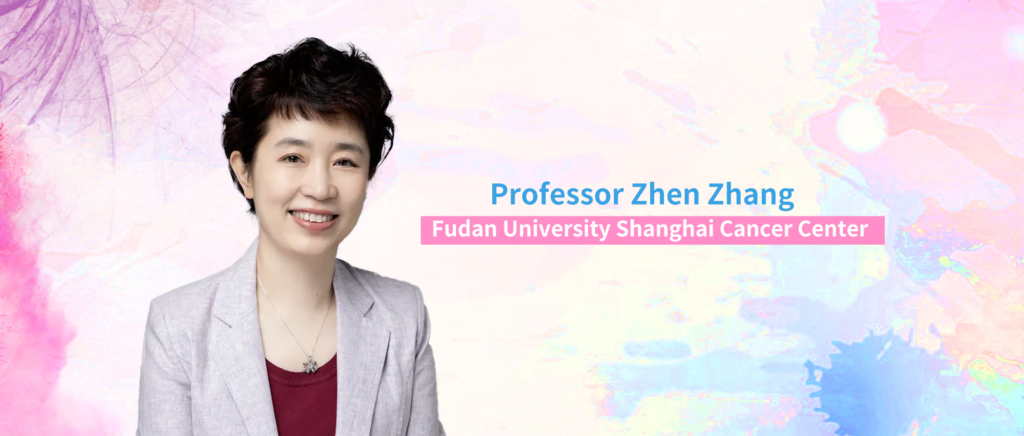
Editorial Note: Colorectal cancer ranks as the second most prevalent malignancy in China and represents the most common type of gastrointestinal cancer. In recent years, there has been a rapid increase in both incidence and mortality rates. With continuous innovations in relevant diagnostic and therapeutic technologies such as immunotherapy and radiotherapy, the efficacy of treatments for patients has improved significantly, while the toxic side effects have been greatly reduced. Professor Zhang Zhen from Fudan University Shanghai Cancer Center provides insights into recent research advances in the field of colorectal cancer and updates on the 2024 Chinese Society of Clinical Oncology (CSCO) guidelines.
Oncology Frontier: The CSCO Colorectal Cancer Guidelines have garnered widespread acclaim and praise among clinical practitioners since their inception. What features of these guidelines do you believe enable them to quickly integrate into the clinical practice of Chinese physicians?
Professor Zhang: The CSCO guidelines differ from international guidelines such as those from the National Comprehensive Cancer Network (NCCN). While international guidelines often reference research results from abroad, in recent years, an increasing number of domestic research findings have been cited in the CSCO guidelines. The writing of the CSCO guidelines is based on evidence-based medicine principles while also considering product accessibility. Therefore, I believe that the CSCO guidelines are more pragmatic. The recommended treatment options and techniques are also available domestically, providing better guidance for clinical practice and serving as a solid reference for treatment. The various versions of the CSCO guidelines, including the pocketbook version, are very convenient. Clinical practitioners can quickly consult them when encountering problems, which greatly guides clinical treatment.
Oncology Frontier: What are the important updates in the 2024 version of the CSCO Colorectal Cancer Diagnosis and Treatment Guidelines compared to previous versions?
Professor Zhang: Compared to the 2023 version, there are many changes in this year’s (2024 version) guidelines. The CSCO Colorectal Cancer Guidelines focus on both efficacy and function. Based on this principle, we can proudly say that the recommendations for some clinical studies in the CSCO guidelines are earlier than those recommended by the NCCN guidelines.
Previously, the immunotherapy section of the CSCO Colorectal Cancer Guidelines was stratified based on the patient’s risk level, and in the 2023 guidelines, a recommendation was added for new adjuvant therapy strategies for colorectal cancer based on MMR/MSI status. This year’s update to the CSCO Colorectal Cancer Guidelines is mainly divided into two parts: as the treatment efficacy for colorectal cancer patients continues to improve, there is also increasing attention on reducing the toxicity of treatment. Based on the Prospect study, we have also updated the treatment recommendations for patients with advanced colorectal cancer. Additionally, although the data from related immunotherapy studies are still maturing, we have also seen a trend of benefit for immunotherapy patients. Based on the treatment advancements in various studies in 2023, we have updated the recommendations for immunotherapy in the treatment of colorectal cancer patients.
Oncology Frontier: You primarily focus on the diagnosis and treatment of tumor radiotherapy. Could you introduce some important research progress in colorectal cancer radiotherapy over the past year?
Professor Zhang: The CSCO Colorectal Cancer Guidelines are updated based on research data published in major international and domestic conferences and journals over the past year. Looking back over the past year, academic successes such as the Prospect study, the UNION study led by Professor Tao Zhang’s team from Tongji Medical College, Huazhong University of Science and Technology Affiliated Union Hospital, and our team’s TORCH study have all released data, bringing reduced toxicity schemes and good treatment efficacy to patients.
Oncology Frontier: Clinical practice often extends beyond the scope of guidelines, and multidisciplinary team (MDT) collaboration has become increasingly important. How do you think we can make good use of guidelines and combine the experience of MDT to develop personalized diagnosis and treatment strategies for patients?
Professor Zhang: Multidisciplinary treatment teams play a crucial role in clinical treatment. Tumors require comprehensive treatment models; therefore, the treatment of tumor patients cannot be separated from multidisciplinary teams. How to improve the treatment efficacy and reduce toxicity for tumor patients requires the brainstorming of multidisciplinary teams.
Based on the joint efforts of multidisciplinary teams, our center has also achieved many achievements. The CSCO guidelines make our clinical treatment more standardized. On this basis, our multidisciplinary team also needs to work harder to explore updated and more effective low-toxicity schemes, while providing more evidence for future guideline updates. I believe that guidelines provide us with a ladder to climb higher. We need to strive for higher goals. This is the task that multidisciplinary teams need to undertake and the direction we should strive for in the future.


